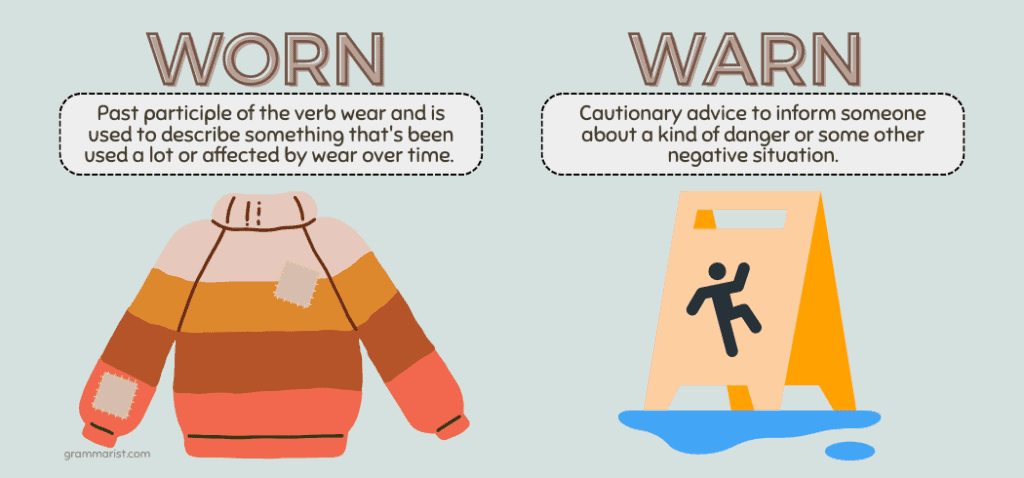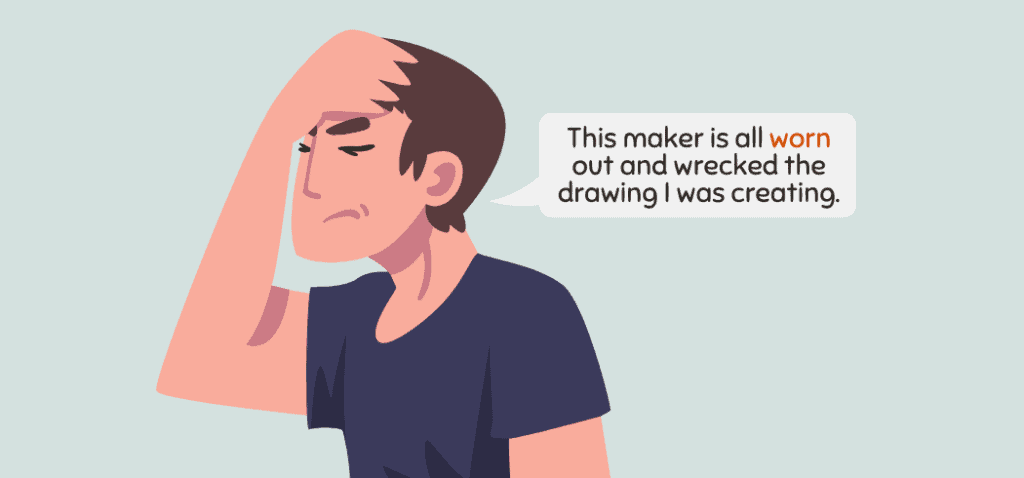Homophones sure can mess things up if used incorrectly. Simple words like warn and worn get mixed up all the time, and it’s an easy mistake to make because of a single letter difference. So, I’ll take a moment to explain their meanings and intents and share a few sentence examples with you to show how you can use them correctly.
Worn vs. Warn: What’s the Difference?

The meaning of warn is cautionary advice to inform someone about a kind of danger or some other negative situation. It’s a verb, and we commonly use it in everyday speech and different forms of writing.
Then, worn is the past participle of the verb wear and is used to describe something that’s been used a lot or affected by wear over time. You can use worn as an adjective when describing the appearance of an object or a person affected by wear.
How to Remember the Difference
Easy peasy! The way I remember is that warn comes from warning and that worn has the letter o like old, which is how something looks when it’s really worn out.
Synonyms for Warn
Don’t want to be too repetitive in your writing? Try one of these words that have a similar meaning to warn.
- Alert
- Advise
- Caution
- Tell
- Notify
- Forewarn
Synonyms for Worn
Spruce up your vocabulary and try using any of these colorful words instead of worn.
- Tattered
- Threadbare
- Used
- Damaged
- Weathered
Warn Examples in a Sentence
Seeing how you can use this word in the context of a sentence should help you understand it better.
- The lifeguard warned the swimmers about the dangerous currents and advised them to stay close to shore.
- I tried to warn my mother about the slippery floor as I mopped, but she didn’t listen and slipped.
- The weather report warned of a severe snowstorm approaching western Newfoundland.
- My math teacher warned every student not to cheat on the test because she’d be watching.
- The police officer warned the other driver involved about the consequences of speeding.
Worn Examples in a Sentence

Here are all the different ways you can use the word worn in conversation and in writing.
- My kid’s worn-out shoes had seen better days, but he said they were still comfortable.
- The old, worn book was a cherished family heirloom, so I had it professionally restored.
- The antique chair my mom gave me was worn and creaky, but it had a certain charm that I really liked.
- The single mother’s worn expression revealed the exhaustion she felt after a long day working two jobs and raising her son.
- I felt comfortable taking the path through the woods because it was well-worn, and I knew people frequented it every day.
- This maker is all worn out and wrecked the drawing I was creating.
Final Words on Warn and Worn
Homophones are tricky but get easier with practice. Just be sure to remember the tricks I showed you. Warn is like warning, and worn is how something appears when it’s been used a lot. If you want to add some more homophones to your vocab, check out my other helpful guides!
Enjoyed reading about this homophone? Check out some others we covered:
